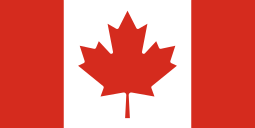Tuition Fees in Denmark for International Students
In Denmark, a diverse range of undergraduate, postgraduate, and doctoral courses are available, each with varying tuition fees depending on the institution. Moreover, the cost of studying these programs can fluctuate significantly across universities.
Various scholarships are offered by Danish universities, the government, and private organizations in Denmark to support deserving international students with their tuition fees.
The total cost of your education will primarily hinge on your choice of program and the specific university you opt for. Generally, tuition for colleges and universities in Denmark can range from EUR 6,000 to EUR 16,000 per year for non-EU/EEA students.
To find out the exact expenses associated with studying in Denmark and to explore more affordable courses, consider disciplines such as humanities, social sciences, and education.
However, if you are not constrained by tuition fees in Denmark, you might consider enrolling in programs such as medicine, engineering, or business, which typically come with higher tuition fees.
The table below shows an estimated cost range for studying in Denmark.
| Courses for International Students | Average Annual Fees (EUR) | Average Annual Fees (NPR) |
| Undergraduate courses | €6,000 to €13,000 per year | Rs 8,64,000 to Rs 18,72,000 per year (approx.) |
| Postgraduate courses | €8,000 to €15,000 per year | Rs 11,52,000 to Rs 21,60,000 per year (approx.) |
| PhD courses | Often free or €6,000 to €10,000 | Rs 8,64,000 to Rs 14,40,000 per year (if applicable) |
| MBA Courses | €12,000 to €16,000 per year | Rs 17,28,000 to Rs 23,04,000 per year (approx.) |
- Undergraduate Tuition Fees in Denmark
Denmark’s average tuition fees for undergraduate international students (non-EU/EEA) typically range between €6,000 and €16,000 per year, depending on the program and university.
You can expect to pay tuition fees ranging from €6,000 to €16,000 depending on the course and institution you choose. However, courses like Bachelor’s in Medicine, Engineering, and Business are generally more expensive.
Undergraduate degrees in the humanities and social sciences are among the more affordable options in Denmark, with some programs starting at approximately €6,000 per year.
While courses in engineering and medicine tend to be at the higher end, costing up to €15,000–€16,000 per year.
Furthermore, undergraduate courses in business and management in Denmark usually fall in the mid-range, with tuition fees around €10,000–€14,000 per year.
- Postgraduate Tuition Fees in Denmark
If you want to study a master’s program in Denmark, the cost of education is still considered affordable compared to many other popular study-abroad destinations. So, what will it cost to study in Denmark if you want to pursue a master’s degree?
On average, tuition fees for postgraduate programs in Denmark range from €8,000 to €15,000 per year for international (non-EU/EEA) students, depending on the university and program.
The average annual fee for Executive MBA programs in Denmark can be higher, typically ranging between €20,000 and €45,000, depending on the institution and program structure.
In contrast, regular MBA programs generally cost between €12,000 and €25,000 per year.
Please keep in mind that tuition fees vary depending on the university and the specific program you choose.
- Ph.D. Courses in Denmark
Similar to other degrees, the cost of a Ph.D. in Denmark varies depending on the course and university. Generally, international students (non-EU/EEA) may have to pay tuition fees, while EU/EEA and Swiss students often study tuition-free.
However, many universities in Denmark offer fully funded Ph.D. positions as paid research jobs, meaning students receive a salary instead of paying tuition. These positions are highly competitive and usually tied to specific research projects.
For example, universities like Aarhus University and the University of Copenhagen offer salaried Ph.D. positions where students earn around €3,000 to €4,000 per month before tax—covering both living expenses and tuition.
That said, some institutions may still charge tuition for self-financed international students, depending on the program and funding structure.
In Denmark, unlike in many countries, Ph.D. students are considered employees rather than students, which significantly reduces the financial burden.
Total Cost to Study in Denmark from Nepal

Denmark is one of the emerging and attractive study destinations in Europe. It is known for its innovative learning environment, high-quality education, and welcoming attitude towards international students.
The universities in Denmark consistently rank among the best in Europe. Their programs emphasize real-world applications and problem-solving, making Danish degrees highly valued globally.
Denmark is a hub of research, sustainability, and innovation. If you’re considering studying abroad, Denmark offers excellent academic programs and strong support systems for international students.
It also provides several scholarship opportunities and often fully funded Ph.D. positions. Denmark is not just recognized for its academic excellence, but also for offering international students a high quality of life and career opportunities post-study.
The table below provides an estimate of how much it costs to study in Denmark from Nepal.
| Cost Category | Expenses (approx. in EUR) | Expenses (approx. in NPR) |
| On-campus housing | €3,000 – €5,000/year | Rs 4,32,000 – Rs 7,20,000/year |
| Shared apartment | €400 – €700/month | Rs 57,600 – Rs 1,00,800/month |
| University-arranged Homestay | €500 – €800/month | Rs 72,000 – Rs 1,15,200/month |
| Student residence | €250 – €600/month | Rs 36,000 – Rs 86,400/month |
| Student visa application | €255 (one-time) | Rs 36,700 (approx.) |
| Telephone/Internet | €20 – €30/month | Rs 2,880 – Rs 4,320/month |
| Books and supplies | €300 – €500/year | Rs 43,200 – Rs 72,000/year |
| Personal expenses | €200 – €400/month | Rs 28,800 – Rs 57,600/month |
| Health insurance (if applicable) | €500 – €700/year | Rs 72,000 – Rs 1,00,800/year |
| Total Estimated Annual Cost | €10,000 – €14,000/year | Rs 14,40,000 – Rs 20,16,000/year |
Expenses to Study in Denmark

1. Book Materials
Depending on the university and course, textbooks in Denmark can be quite expensive, especially for specialized programs. For example, textbook costs for engineering courses can range from €200 to €300 per semester.
Textbooks for law, medicine, and pharmacy tend to be even more costly. To save money, many students opt to buy used books, access digital textbook platforms, or borrow materials from university libraries, which often offer generous lending policies through student memberships.
2. Accommodation Costs
Denmark provides a variety of housing options for international students, including student residences, university-arranged homestays, and shared or private apartments. Accommodation costs vary depending on the city (with Copenhagen being the most expensive) and the amenities provided.
Some average monthly accommodation expenses in Denmark include:
- Student Residences: €250 – €600 per month
- University-Arranged Homestays: €500 – €800 per month
- Shared Apartments: €400 – €700 per month
- Private Studio Apartments: €800 – €1,200 per month
In addition, utilities (electricity, water, heating) typically cost €100 – €150 per month, and internet may cost around €30 – €50 per month.
3. Transportation Costs
Public transportation in Denmark is efficient and student-friendly. A single ticket typically costs €2.50 – €3.50, while a monthly pass is around €40 – €55, depending on the city and travel zones.
Students under the age of 26 often receive discounted travel cards. Biking is also a popular and affordable transport option, with many cities offering bike-sharing programs. Taxis are available, costing approximately €1.50 – €2.50 per kilometer.

4. Health Expenses and Insurance
Health insurance is mandatory for non-EU/EEA international students in Denmark. However, students enrolled in full-time programs are typically covered by Denmark’s public healthcare system, once they register and receive a CPR number (Danish ID).
If private insurance is required (for coverage during the first few weeks or for non-EU/EEA dependents), the cost is around €500 – €700 per year.
5. Taxes and Work
International students in Denmark with a valid residence permit are allowed to work part-time for up to 20 hours per week during the academic year and full-time during holidays.
Students must obtain a Danish tax card and CPR number. Income from work is subject to Danish tax laws, and students are required to file annual tax returns.
Denmark Student Visa and Study Permit Costs
To study in Denmark, students from Nepal must obtain a residence permit for studies, which functions similarly to a student visa. You cannot study in Denmark without a residence permit.
Key requirements and costs include:
- Visa application fee: €255 (approx. NPR 36,700)
- Acceptance letter from a Danish higher education institution
- Proof of financial resources to support tuition and living expenses
- Proof of clean criminal record
- Medical certificate proving you are fit to travel
- Statement of intent to return to Nepal upon completion of studies
The residence permit is usually valid for the duration of your studies and can be extended as needed.
To learn more about the cost to study in Denmark, contact one of the best education consultancy in Nepal for Denmark—Goreto Educational Consultancy in Nepal.
Frequently Asked Questions (FAQs)
Do Danish universities offer scholarships for international students?
Yes. Many Danish universities offer tuition waivers and scholarships for outstanding international students, particularly from non-EU/EEA countries. These may cover part or full tuition and sometimes include monthly stipends.
How long does a Master’s degree take in Denmark?
Most Master’s programs in Denmark are 2 years long (120 ECTS credits). Some specialized programs may take 1.5 years. They often include research projects, internships, and opportunities to collaborate with Danish companies or research institutions.
Can I work while studying in Denmark?
Yes. International students in Denmark can work up to 20 hours per week during the semester and full-time during vacations. After graduation, you can apply for a Job Seeker Visa valid for up to 3 years, allowing you to search for full-time employment.
How much does it cost to study a Bachelor’s degree in Denmark?
For non-EU/EEA students, tuition fees typically range from €6,000 to €16,000 per year (NPR 864,000 – NPR 2,300,000) depending on the university and program. Humanities and social sciences tend to be more affordable, while engineering and business programs are on the higher end.
What is the age limit for PhD in Denmark?
There is no formal age limit for pursuing a PhD in Denmark. Admissions are based on academic merit, research potential, and funding availability. However, if you’re applying later in life, it’s important to demonstrate a strong motivation, a clear research plan, and the ability to contribute to your field.
What is the minimum IELTS score required for Denmark student visa?
The minimum IELTS score requirement generally depends on the program level and university, but most Danish universities require:
- Bachelor’s degree: Overall band score of 6.0 – 6.5
- Master’s degree: Overall band score of 6.5 – 7.0
- PhD programs: Often require 7.0 or higher, especially for research-intensive fields
Always check the specific requirements of the institution and program you’re applying to.


